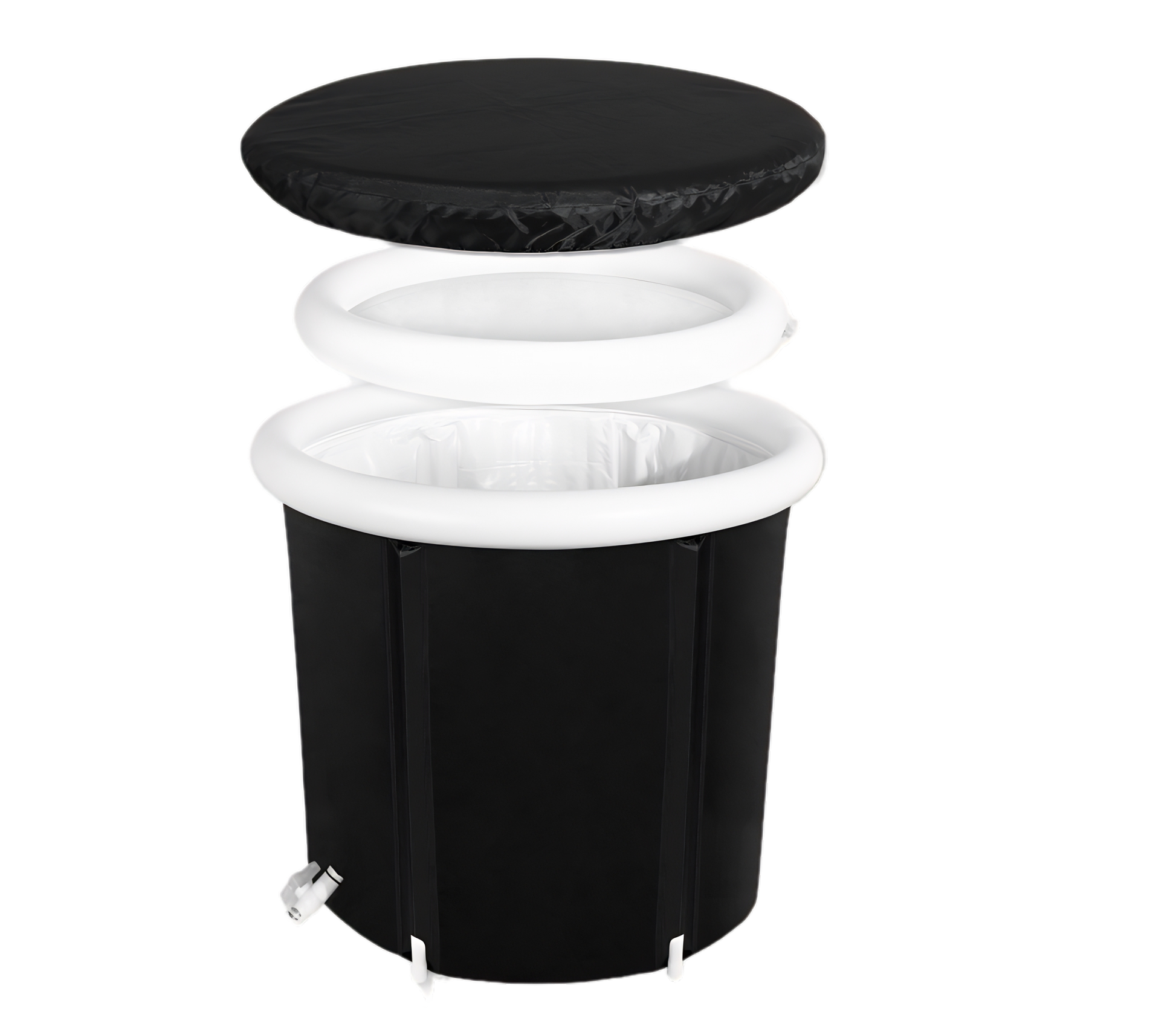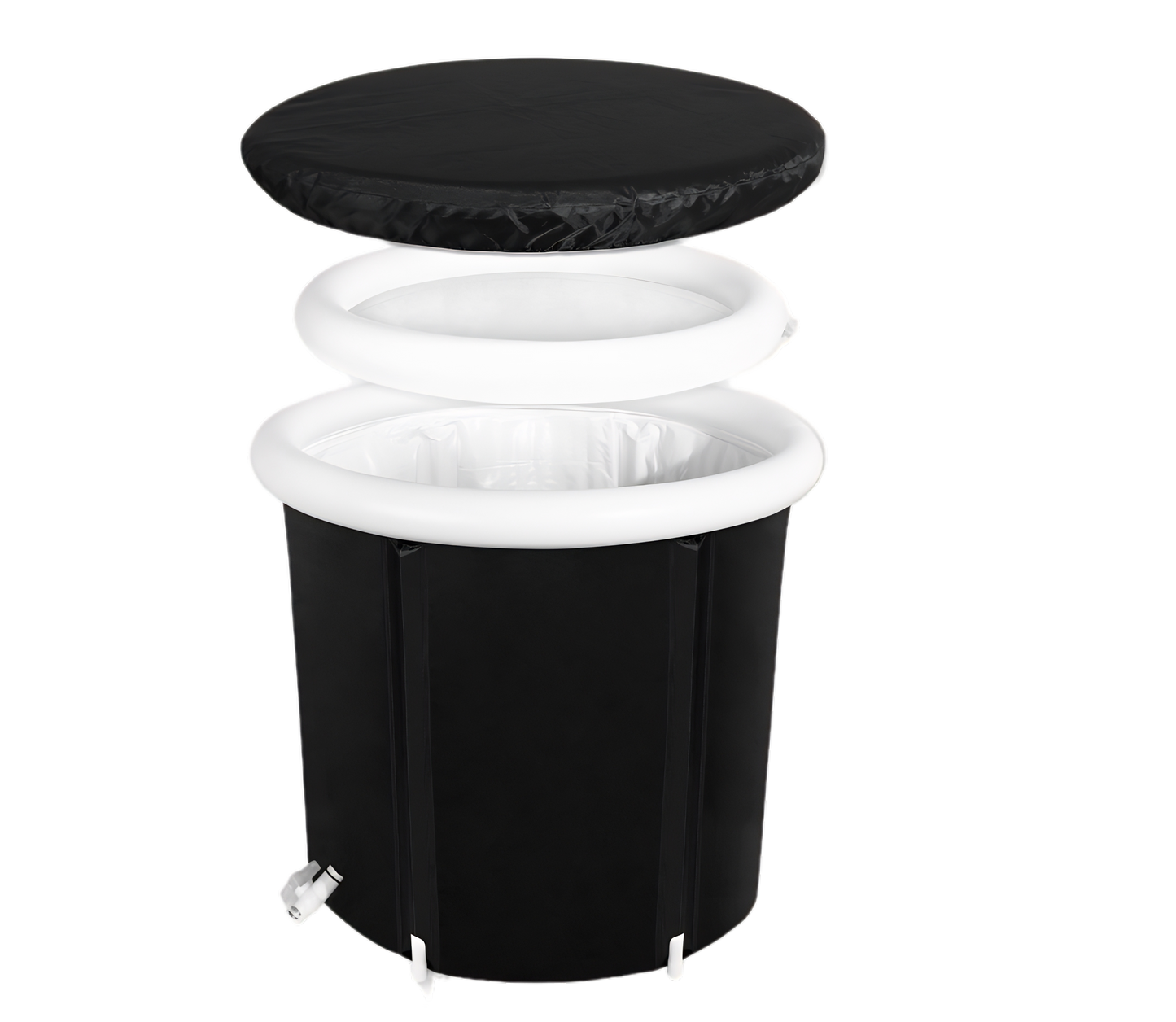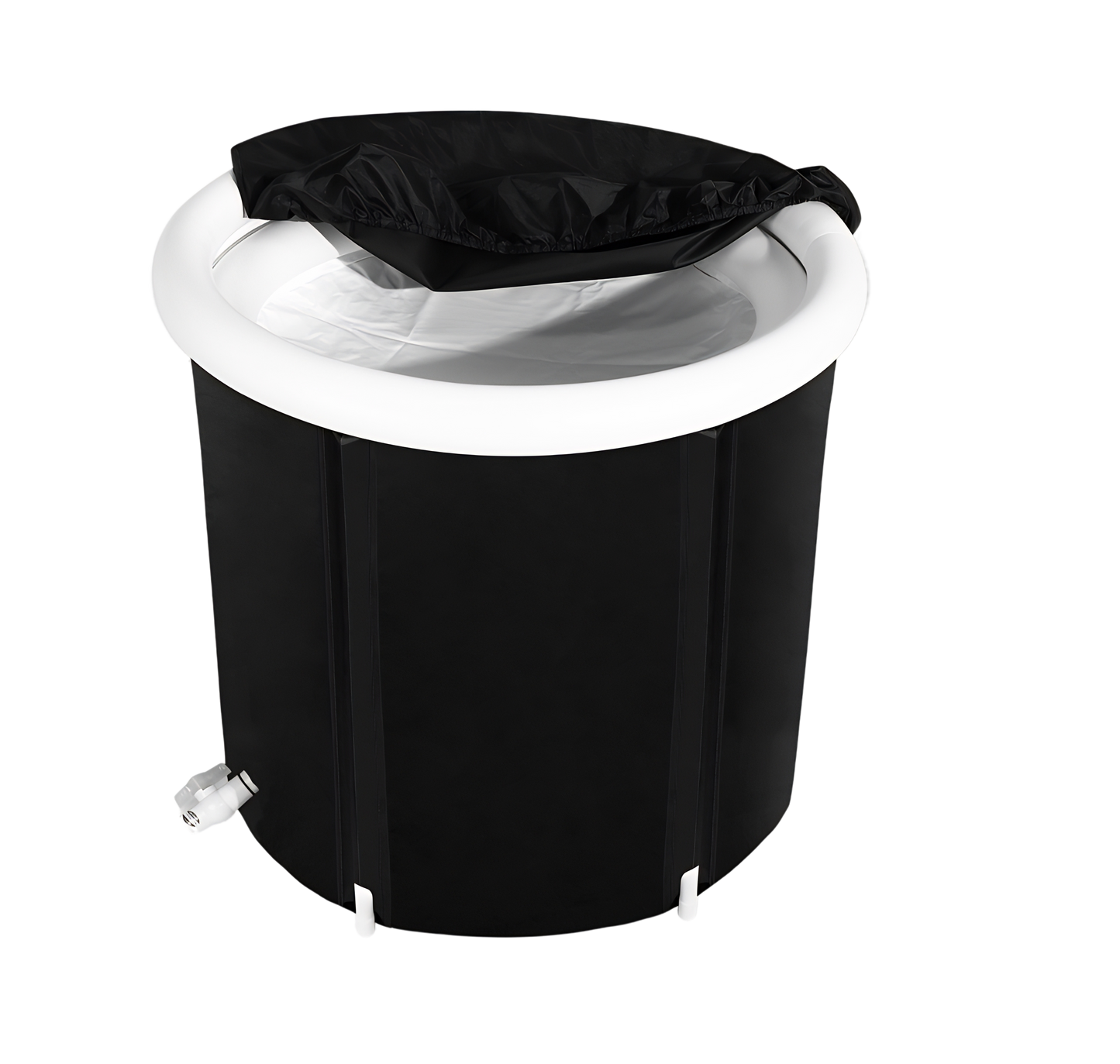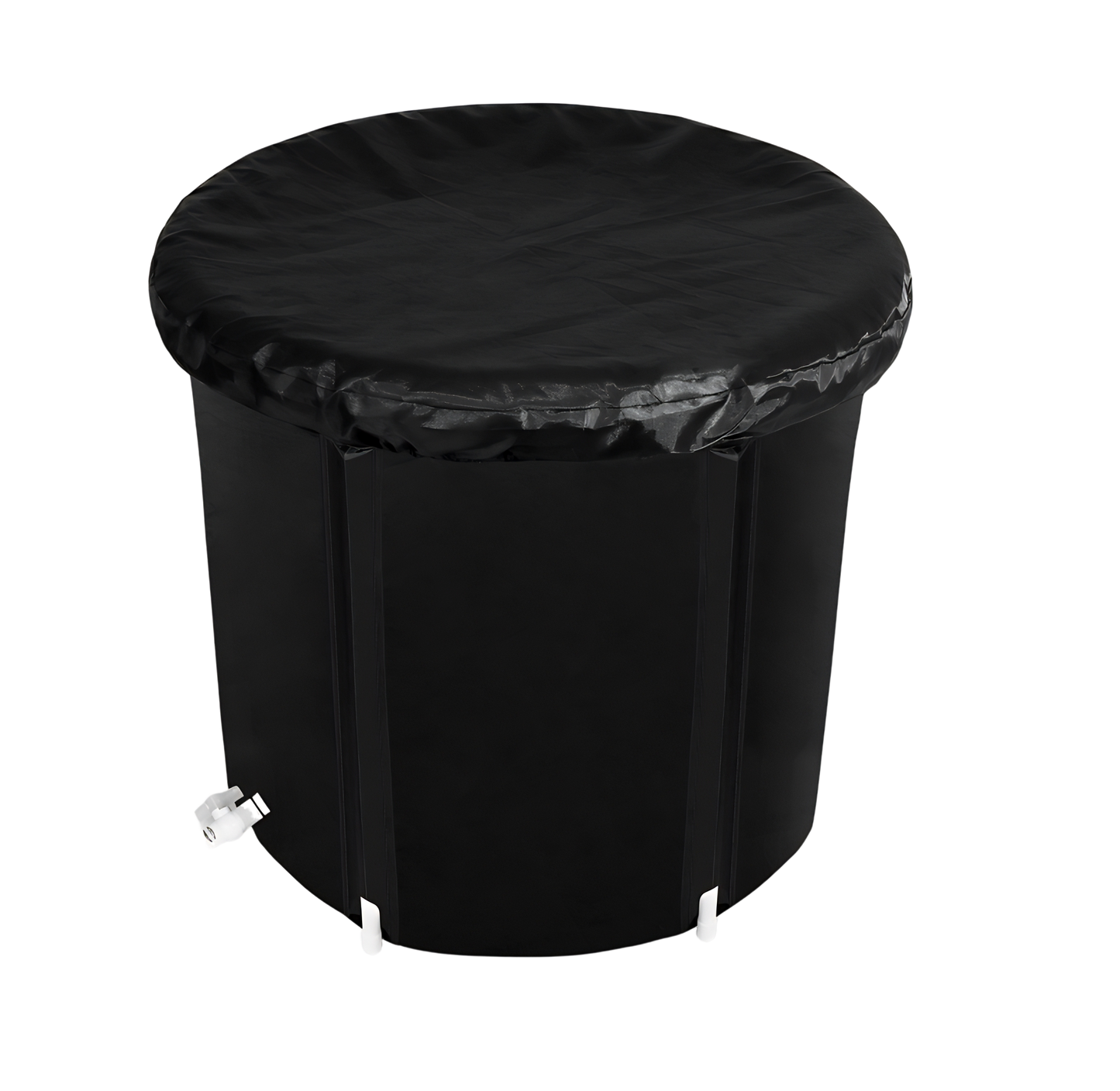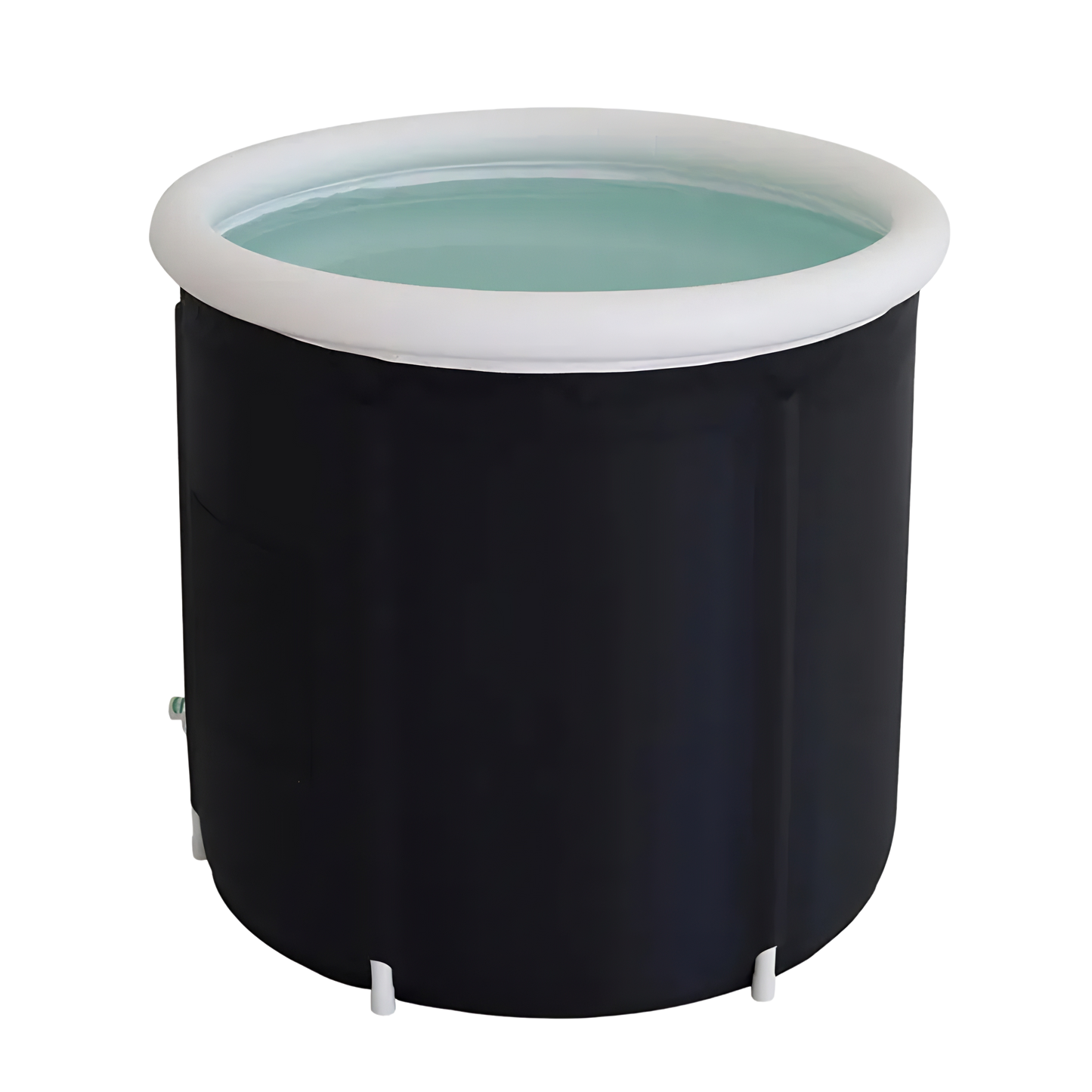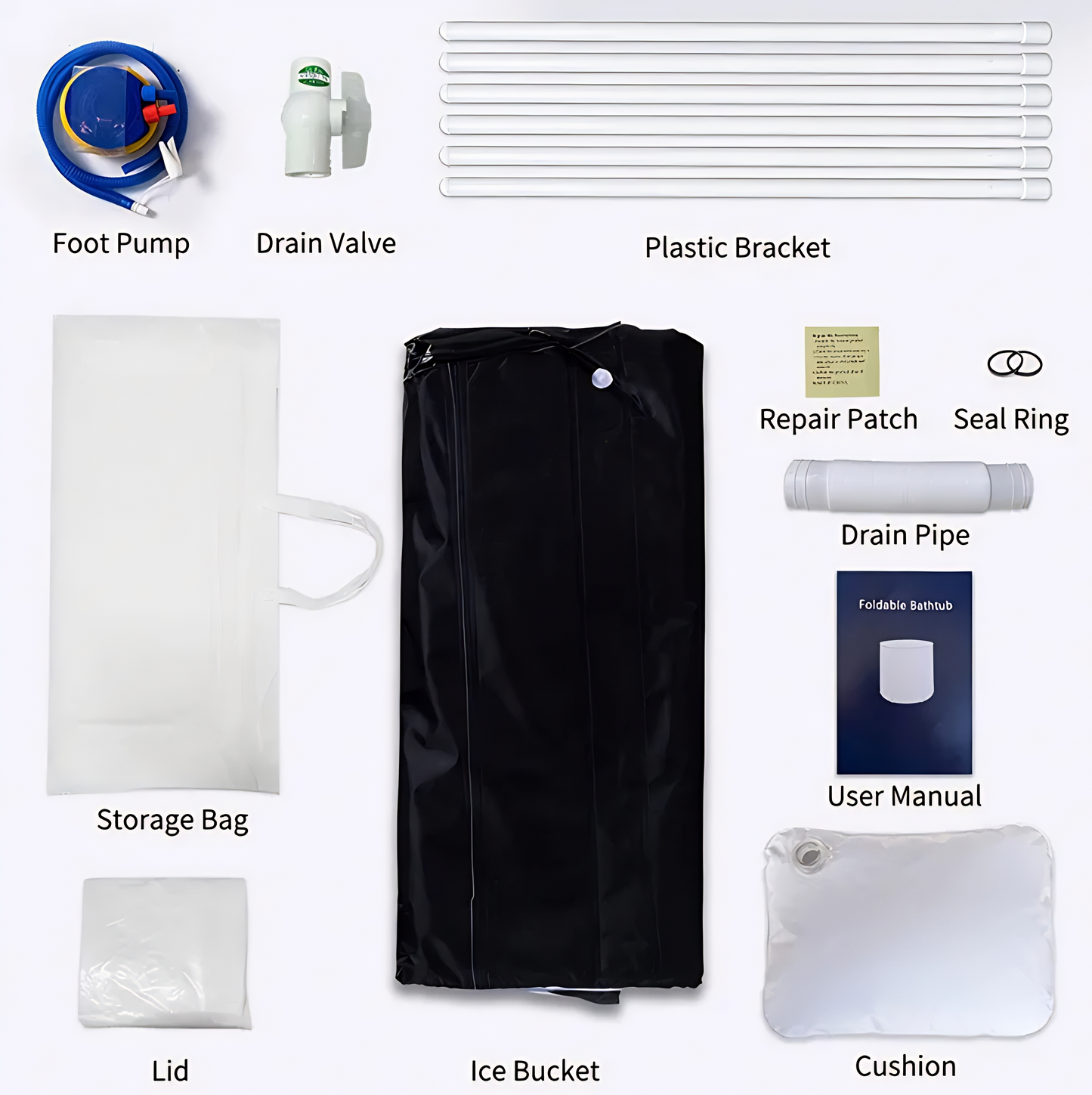Ice baths, also known as cold water immersion or cryotherapy, have gained popularity for their potential impact on energy use and metabolism. The scientific literature suggests that cold exposure can activate brown adipose tissue, increase metabolic rate, improve glucose homeostasis, and potentially aid in weight loss. However, the evidence is still inconclusive, and more research is needed to fully understand the metabolic effects of ice baths.
Key Takeaways:
- Ice baths, or cold water immersion, have been associated with potential metabolic benefits.
- Cold exposure can activate brown adipose tissue and increase metabolic rate.
- Ice baths may improve glucose homeostasis and potentially aid in weight loss.
- Further research is needed to fully understand the metabolic effects of ice baths.
- Individuals should approach cold water immersion with caution and consult with a healthcare professional.
The Mind: Psychological Benefits of Cold Water Immersion

Cold water immersion not only has physical benefits but also has a positive impact on mental well-being. Research suggests that exposure to cold water can lead to improved mood and increased mental clarity. When the body is exposed to cold temperatures, it triggers the release of endorphins, commonly known as "feel good" hormones. These endorphins are responsible for the feelings of euphoria and overall well-being that individuals may experience after an ice bath.
Additionally, cold water immersion has been found to activate the part of the nervous system that regulates the fight-or-flight stress response. This activation can help individuals better cope with stress and improve their stress response regulation. It has also been suggested that the shock of cold water can help reset the mind and promote a sense of calmness and mental focus.
While the psychological benefits of cold water immersion are promising, more research is needed to fully understand the mechanisms and long-term effects. It is important to note that individual experiences may vary, and not everyone may experience the same psychological benefits from ice baths. Additionally, it is essential to practice safe and responsible cold water immersion, ensuring that the water temperature is appropriate and avoiding prolonged exposure that may lead to hypothermia or other adverse effects.
"Cold water immersion provides a unique mental reset and improved cognitive function. It's like hitting a refresh button for the brain, helping individuals feel more focused and energized."
Psychological Benefits of Cold Water Immersion:
- Improved mood and well-being
- Increased mental clarity and focus
- Activation of endorphins, the "feel good" hormones
- Regulation of the stress response
- Potential for enhanced cognitive function
While the psychological benefits of cold water immersion are promising, it is important to approach it with caution and listen to your body. If you have any underlying health conditions or concerns, it is recommended to consult with a healthcare professional before incorporating ice baths into your wellness routine.
The Heart: Considerations for Cardiac Health
Cold water immersion, such as ice baths, can have effects on the cardiovascular system and should be approached with caution, especially for individuals with underlying heart conditions or a family history of early heart disease. While cold exposure temporarily raises blood pressure and increases stress on the heart, it is generally considered safe for healthy individuals. However, it is important to prioritize cardiac health and take necessary precautions when considering ice baths for recovery or metabolic benefits.
For those with heart trouble or a history of heart disease, consulting a physician before engaging in cold water immersion is crucial. A healthcare professional can evaluate an individual's specific condition and provide guidance on whether ice baths are suitable and safe. It is important not to underestimate the potential risks cold water immersion can pose to the cardiovascular system.
In summary, while ice baths may offer potential benefits for metabolism and recovery, individuals should prioritize their cardiac health and seek professional advice when considering cold water immersion. Taking precautions and working closely with a healthcare provider can help ensure the safety and well-being of individuals who wish to incorporate ice baths into their wellness routine.

- Engage in regular aerobic exercise to strengthen the heart muscle and improve cardiovascular health
- Maintain a healthy diet rich in fruits, vegetables, whole grains, and lean proteins to support heart health
- Avoid smoking and limit alcohol consumption, as they can have detrimental effects on the heart
- Manage stress through relaxation techniques, such as meditation or deep breathing exercises
- Get regular check-ups with a healthcare provider to monitor heart health and address any concerns
"While ice baths may offer potential benefits, it is crucial to prioritize cardiac health and seek professional advice when considering cold water immersion."
Metabolism: The Role of Brown Fat and Insulin Sensitivity
The metabolic effects of ice baths and cold water immersion are believed to be mediated, in part, by the activation of brown adipose tissue (BAT) (Espeland et al., 2022). Brown fat is a type of adipose tissue that is metabolically active and specialized for heat generation. When exposed to cold temperatures, brown fat is activated, leading to an increase in energy expenditure and thermogenesis. This can potentially contribute to weight loss and improved metabolic health.
A study conducted by Lee et al. (2014) found that . The research participants, when exposed to cold, experienced an increase in the uptake of glucose by brown fat, suggesting improved insulin sensitivity. Cold-induced activation of brown fat may therefore have implications for individuals with insulin resistance or diabetes.
A further study by Ravussin et al. (2014) highlights that intermittent cold exposure activates brown adipose tissue, leading to a heightened metabolic rate, demonstrating the potential of cold therapies like ice baths to stimulate metabolic activity through the thermogenic capacity of brown fat.
In addition to brown fat activation, ice baths and cold water immersion have also been shown to regulate insulin response. A study by Iwen et al. (2017) found that cold exposure increased insulin sensitivity in healthy individuals. This suggests that regular exposure to cold temperatures, such as that experienced during ice baths, may have the potential to improve insulin sensitivity and metabolic health.
| Study | Findings |
|---|---|
| Lee et al. (2014) | Cold exposure increases brown fat activity and energy expenditure. |
| Iwen et al. (2013) | Cold exposure improves insulin sensitivity. |
| Ravussin et al. (2014) | Cold exposure stimulates metabolic activity |
While the activation of brown fat and improvement in insulin sensitivity are promising, it is important to note that more research is needed to fully understand the long-term effects and potential risks of ice baths on metabolism. The mechanisms through which cold exposure affects brown fat and insulin response require further investigation. It is also necessary to determine the optimal duration and frequency of cold water immersion for metabolic benefits.
Immune System: Potential Benefits and Unknowns
Cold water immersion has been a topic of interest for its potential impact on the immune system. Some anecdotal evidence suggests that regular exposure to cold water may boost immune function and reduce the risk of colds or infections. It is believed that cold water immersion stimulates the production of certain white blood cells and other infection-fighting substances in the body. However, the specific temperature and duration required for these immune system benefits are still unknown and require further research.
Anecdotal evidence aside, it is important to note that occasional cold water exposure, such as a quick dunk in icy water, may not offer the same immune-boosting effects as regular and prolonged cold water immersion. The body's response to cold water immersion is complex and multifaceted, involving various physiological processes that interact with the immune system. More research is needed to fully understand the mechanisms and determine the optimal conditions for immune system benefits.
In conclusion, while there is some suggestive evidence of potential immune system benefits from cold water immersion, the current understanding is still limited. Additional studies are necessary to determine the precise effects of cold water immersion on the immune system and to establish guidelines for safe and effective practices. Individuals interested in exploring the potential immune-boosting effects of cold water immersion should consult with healthcare professionals and consider incorporating other evidence-based strategies, such as maintaining a balanced diet, regular exercise, and good sleep hygiene, to support overall immune health.
Conclusion
Ice baths, also known as cold water immersion or cryotherapy, have gained popularity for their potential benefits, particularly among athletes. They are believed to have positive effects on metabolism, including increased energy expenditure, improved insulin sensitivity, and potential weight loss.
Furthermore, cold water immersion has shown psychological benefits, such as improved mood and stress response regulation. The release of endorphins during cold exposure contributes to an enhanced sense of well-being. However, it is essential to note that more research is needed to fully understand the impact of ice baths on overall metabolism and health.
Individuals, especially those with underlying health conditions, should approach cold water immersion with caution. It is advisable to consult with a healthcare professional before incorporating ice baths into a wellness routine.
FAQ
What are the potential metabolic effects of ice baths?
Ice baths, or cold water immersion, have been suggested to activate brown adipose tissue, increase metabolic rate, improve glucose homeostasis, and potentially aid in weight loss.
What are the psychological benefits of cold water immersion?
Cold water immersion has been found to improve mood and increase mental clarity. Exposure to cold water stimulates the release of endorphins, which are known as "feel good" hormones that can enhance feelings of well-being. Additionally, it activates the part of the nervous system that regulates the fight-or-flight stress response, potentially helping individuals better cope with stress.
Read More: Ice Baths and Mental Health.
Are ice baths safe for individuals with heart conditions?
Cold water immersion temporarily raises blood pressure and increases stress on the heart. While it is generally safe for healthy individuals, it can be dangerous for those with underlying heart conditions. People with heart trouble or a family history of early heart disease should consult a physician before engaging in cold water immersion. It is important to prioritize cardiac health and take necessary precautions when considering ice baths for recovery or metabolic benefits.
Read More: Ice Baths and Heart Health.
How does cold water immersion affect brown fat and insulin sensitivity?
Cold exposure, such as ice baths, has been found to activate brown adipose tissue, which is responsible for generating heat and regulating blood sugar and insulin levels. Activation of brown fat can increase metabolic rate and energy expenditure. Cold exposure may also improve insulin sensitivity, potentially reducing the risk of diabetes or aiding in its management. However, more research is needed to fully understand the mechanisms and long-term effects of brown fat activation through cold water immersion.
Can cold water immersion boost immune function and reduce the risk of infections?
Some anecdotal evidence suggests that regular exposure to cold water may boost immune function and reduce the risk of colds or infections. Cold water immersion has been associated with increased levels of certain white blood cells and other infection-fighting substances. However, it is still unclear whether occasional cold water exposure, such as a quick dunk in icy water, can have the same effect. The specific temperature and duration required for immune system benefits are also unknown and require further research.

